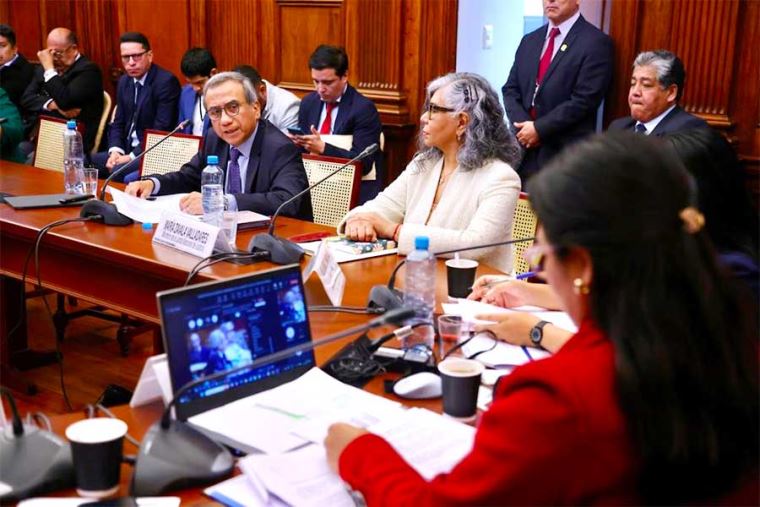Despite the fact that this week the UN confirmed human rights violations in the protests in Peru between December 2022 and March 2023, and recommended “stopping the endless political and social crises” in the country, the Congress of the Republic proposed the removal of the members of the National Justice Board (JNJ), which has been warned as a “parliamentary coup d’état” by the former president of the Constitutional Court (TC), Marianella Ledesma.
The former president of the Constitutional Court, Marianella Ledesma, told RPP noticias about the no end report of the Justice Commission of the Congress of the Republic that recommends the removal of the seven magistrates of the JNJ.
It is an “abusive exercise of the right” due to the fact that, if the measure is framed in article 157 of the Political Constitution, it requires “serious cause” to be exercised. However, “serious cause” has so far not been defined and three alleged acts are supposed to qualify as serious cause “that are not even defined in the law”.
“There has to be a distribution and balance in the exercise of these powers given by the Constitution (…) The alteration in the distribution of the exercise of these powers generates coups d’état from Congress to other entities such as the JNJ”, Ledesma pointed out.
The “serious” misdemeanours identified by Congress are: (1) ruling on the dismissal process of a former prosecutor, (2) allowing the permanence of a judge on the JNJ who exceeds the 75-year limit, and (3) the failure to present an annual report to the Plenary.
Each of these cases was not classified as “serious misconduct” in the report initially presented by the commission on 18 October, but was amended on the night to incorporate the aforementioned misconduct.
The controversial decision of the Congress of the Republic has been rejected by organised civil society organisations such as the National Human Rights Coordinating Committee (CNDDHH), Proética, among others. And the National Justice Board announced that it will go to the Inter-American Court of Human Rights to defend itself.
At the international level, the Centre for Justice and International Law (CEJIL), the Washington Office on Latin America (WOLA), the Due Process of Law Foundation (DPLF) and the UN Rapporteur on the independence of judges and prosecutors, Margaret Satterthwaite, also expressed their concern as they consider the National Justice Board to be a key body for guaranteeing judicial independence.






